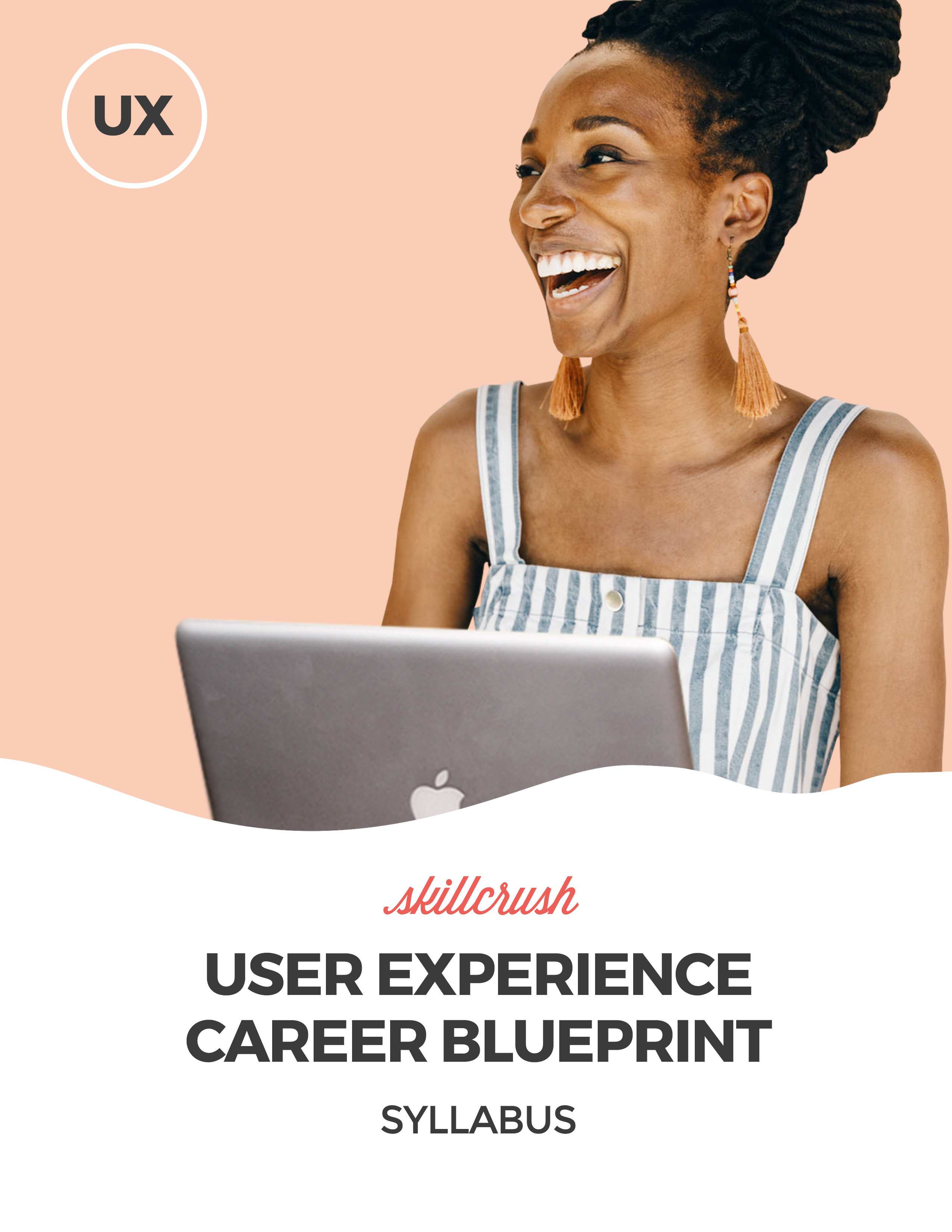
Want to Know EXACTLY How to Land a UX Job?
With a cover letter template, UX job interview questions, and links to the best UX job boards, this FREE toolkit is all you need to land your first job in UX.
Learning tech skills is great (and something you should absolutely do right away!)…buuut once you learn them, it’s time to start applying and interviewing for tech jobs. If you’re wondering what to say when you’re sitting across from a real life hiring manager, we’ve got you covered! Tech job interviews are nothing to fear, especially when you’ve already practiced the most likely questions (and some curveballs as well). That’s why we scoured the internet to pull together comprehensive lists of common questions asked during UX job interviews, AND tips on how you should prepare for and answer them. You’ve got this!
Looking for more interview tips? Check out our articles on:
And if you need to learn the skills to land your own web developer job, consider our User Experience Design Course. This online class is designed to be completed in 3 months by spending just an hour a day on the materials.
UX Job Interview Questions
1. Why do you feel UX is important? / What drew you to UX in the first place?
Tip: This question helps the interviewer get an idea of how much you understand about the industry, but also why you’re passionate specifically about UX. This is a great opportunity to tell a story from your own life / work.
2. What’s the first step you take when tasked with a UX project?
Tip: This gives the interviewer an idea of how you organize your workload but also whether you’re taking the time to really understand the task at hand. It’s usually a good opportunity to describe how you’d start the research process. Listening to the client talk through problems is a good way to start your answer.
3. Describe your ideal manager / Describe your ideal team dynamic.
Tip: UX designers have to work with many different stakeholders, meaning lots of different personalities. A great one can self-motivate and work independently while conducting research but still communicate effectively with their boss and team.
4. What is your design process like?
Tip: If you live and breathe UX, you shouldn’t have any trouble answering this. Where do you start? What questions do you ask? What do you solve for? What programs do you use? Make sure that you also mention how you handle feedback and revision requests—this shows you’re open to them, which is essential when working on a team.
5. Describe a project that didn’t go as planned. What went wrong?
Tip: There’s always a project that doesn’t work out as planned. Explain what went wrong, but then turn this question into a positive by explaining how it affected other UX projects you’ve worked on since.
6. What do you think is the difference between UX for web versus mobile?
Tip: Helllllooo, most users are on their phones all day, every day, so you need to know what’s going on with mobile-first design.
7. Where do you look for industry knowledge?
Tip: UX is a constantly evolving field, right? So you should be reading industry blogs or books or attending conferences or going to UX meet-ups…right? Right?
8. What’s a trend in UX that’s exciting to you right now?
Tip: Another question that reveals your industry knowledge but also shows that you’re constantly evolving as a professional. Talk about what gets you excited and why you think it’s important
9. Describe a project you’ve done that prioritized universal design or accessibility.
Tip: Accessibility is a huge aspect of UX and it’s also one that more and more companies are concerned about for good reason. Have an example ready and consider also touching on some accessibility and/or universal design projects you’d love to tackle some day soon (maybe at this company)
10. How do you handle a tricky client?
Tip: Interpersonal skills are essential for UX designers, especially considering the amount of user research involved. Make it clear you’ve got this handled.
11. How do you balance UX recommendations and profitability?
Tip: Sometimes the annoying elements of the internet—think pop-ups—aren’t UX friendly but they affect a company’s bottom line. Think closely about how you navigate that, and the ways you approach UX with realistic expectations grounded in data.
12. What UX tools do you use regularly? What are your favorites?
Tip: There are plenty of obvious tools which you probably use daily, but think about some tools other interviewees might not mention. What are some cool ones you’ve discovered reading all those industry blogs?
13. Describe your approach to user interviews.
Tip: Obviously this is a huge one. If you’re not sure how to answer this, it’s probably time to do some reading.
14. Let’s say you need to conduct a UX project with a tight (or non-existent) budget. Where would you start?
Tip: Budgets are always tight. What are some of the lowest cost ways you think you can conduct successful user research? Ideally, you’d have an example of a project you completed on a shoestring budget to use to illustrate.
15. How would you improve the UX of our site? / What do you feel our site is missing in terms of UX?
Tip: Be careful with this. You don’t want to get too critical, but you do want to show that you’ve looked at the site in detail and that you also have some fresh ideas. In times like these, it’s best to pretend the interviewer is your client—compliment certain elements that you and admire, then point out a couple of weaknesses. You may also want to end on something to the effect of, “If hired, I would definitely want to talk to the whole team about what they feel is and isn’t working to start seeing what patterns come up.”

Want to Know EXACTLY How to Land a UX Job?
With a cover letter template, UX job interview questions, and links to the best UX job boards, this FREE toolkit is all you need to land your first job in UX.

